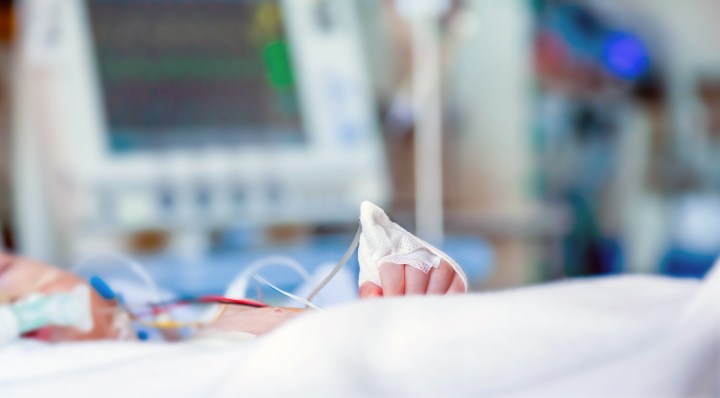RS VIRUS WARNING
Worrying news for parents of young children — experts predict severe wave of respiratory infection

A new model created by infectious disease specialists at the National Institute for Communicable Diseases indicates that the next three months could see a significant outbreak of human respiratory syncytial virus, which causes pneumonia in infants. Covid-19 lockdowns reportedly saved many children from contracting the virus.
After two “suppressed seasons”, models drawn up by South Africa’s infectious disease specialists are predicting a severe wave of human respiratory syncytial virus infections in South Africa over the next three months.
One explanation, said Prof Cheryl Cohen from the National Institute for Communicable Diseases (NICD), was that non-pharmaceutical interventions and lockdown measures, including the closure of schools, had saved many infants from becoming infected in the past two years.
For many years before the outbreak of Covid-19, the RS-virus was the main cause of pneumonia in infants in South Africa below the age of six months.
“We have forgotten that there are other infections,” said Prof Adrian Puren, executive director of the NICD.
Cohen, who heads the unit for respiratory disease and meningitis in the NICD, said the RS-virus is a serious public health concern as pneumonia is the most common cause of death in children below the age of five in South Africa.
She added: “… and there is no vaccine.”
Globally, the RS-virus infects about three million children annually and causes more than 100,000 deaths, with low and middle-income countries hit especially hard.
She explained that as with flu, the RS-virus has a season — it began in March, will peak in April and continue through to May.
Up to now, Cohen said, RS-virus infections were thought of as a disease of infants, but that non-pharmaceutical interventions to prevent the spread of Covid-19 in SA were very successful against the RS-virus. As a result, many infants below the age of one did not get ill, but also now do not have immunity against the disease.
The RS-virus causes cold-like symptoms in adults, but can cause pneumonia in infants, particularly those below the age of six months.
“Non-pharmaceutical measures (like the wearing of masks, washing of hands and physical distancing) have prevented the infection in very young children during the lockdowns in 2020 and 2021, so now we are seeing them get ill when they are older,” she said.
Models tracking the outbreak of RS-virus infections in South Africa during the two intervals, when the government instituted the highest lockdown levels, showed a sudden and definitive drop in numbers. The same pattern was seen when a stricter lockdown was announced at the start of the third wave of coronavirus infections.
In March 2020, the strict Level 5 lockdown was imposed at the start of the RS-virus season and models showed a distinct drop in numbers. Cohen said that schools closing for an extended period also played a major role.
Transmission of the RS-virus was almost completely suppressed during the typical “season” in 2020, but made a resurgence between August and December 2020, coinciding with the relaxation of lockdown measures.
“The strong, out-of-season outbreak recorded approximately 70% of the number of hospitalisations in infants younger than two years old relative to 2019,” according to an article co-authored by Cohen.
Cohen said they were concerned that strict lockdown measures in 2020 and 2021 had created an immunity gap as babies were not exposed to the virus, and they were now seeing older children testing positive for the virus.
“We had a record low number of cases in 2020,” Cohen said. “Lower than we have ever seen before.”
She added that, globally, big outbreaks of RS-virus infections were noted when Covid-19 restrictions had been relaxed.
“Since 2021 we have also seen a shift in infections to older children.”
She said while the seasonal outbreak of the RS-virus followed its normal “season” in 2021, their data showed that more older children were treated for severe infections compared with pre-pandemic years.
Cohen said that their modelling showed SA should expect a significant wave of RS-virus infections over the next three months — with an increase of 33% from the usual numbers:
“The hospitals must get ready. Intensive care units will be quite full.”
Cohen is one of the lead authors of an article published on Wednesday on the predicted outbreak of RS-virus infections in South Africa. DM/MC




















 Become an Insider
Become an Insider
Comments - Please login in order to comment.